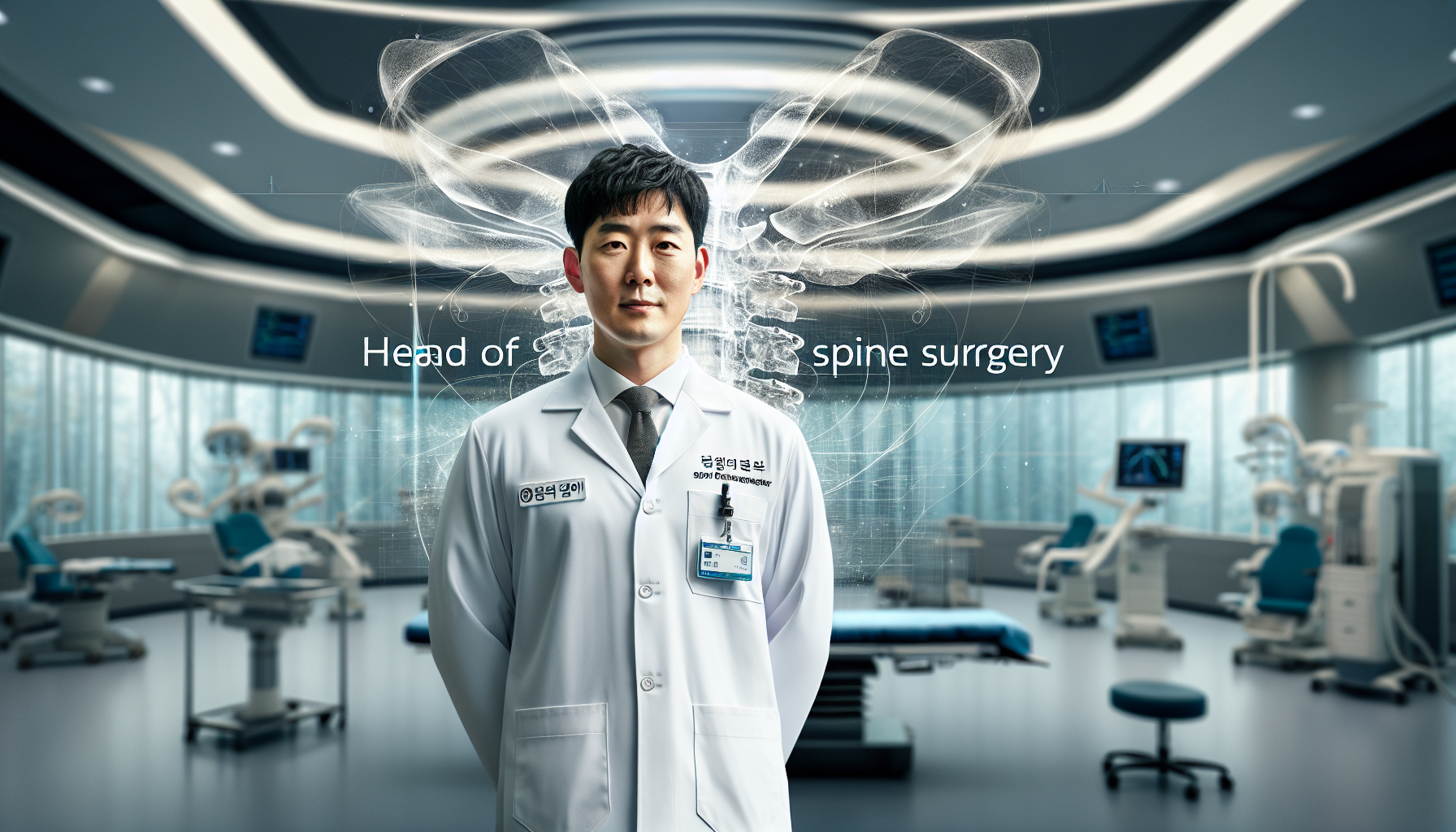Transforming Spine Surgery in Korea: The Vision of a Renowned Neurosurgeon
Introduction: Pioneering Change in Healthcare
Have you ever wondered how advancements in medical procedures can transform the quality of healthcare we receive? In Korea, a new chapter is being written in the history of spine surgery with the appointment of a globally recognized neurosurgeon at the helm of a leading hospital's spine center. This article explores the key facets of this significant transition, delving into innovations in spine surgery, the mission of the new leadership, and the broader implications for patient care.
The Appointment of a Visionary Leader
In an exciting development for the medical community, Dr. Jeong-Gi Cho, a renowned authority in spinal endoscopic surgery, has been appointed as the head of Saengsaeng Hospital's Spine Center in Korea. Dr. Cho's illustrious career spans decades, beginning with his medical degree from Catholic University in 1981. His expertise has been recognized internationally, earning him a spot in the prestigious Marquis Who's Who in the World in 2011, which documents individuals with outstanding achievements. With such credentials, Dr. Cho is poised to lead his team towards achieving exceptional clinical outcomes in spinal health.
Revolutionizing Spine Surgery: Minimally Invasive Methods
A key element of Dr. Cho's vision includes advancing minimally invasive spine surgery. This approach is particularly significant because traditional spine surgery often involves large incisions, lengthy recovery times, and considerable discomfort for patients. Minimally invasive techniques, which Dr. Cho has been instrumental in pioneering, use smaller incisions and often result in less pain and quicker recovery. These methods mark a new era in surgical procedures where technology and precision pave the way for improved patient experiences and outcomes.
Importance of Reducing Patient Wait Time
One of the central objectives of Dr. Cho's leadership is to address a common frustration in healthcare: long wait times for specialized treatment. Saengsaeng Hospital is focusing on optimizing their operational processes to ensure that patients with spinal issues receive timely care. Dr. Cho emphasizes the importance of reducing unnecessary waiting periods so that individuals can receive interventions before their conditions deteriorate significantly. This proactive approach not only enhances patient satisfaction but also improves the overall efficacy of treatments.
Academic and Professional Contributions to Neurosurgery
Dr. Cho's influence extends beyond clinical practice. He has held prominent positions such as Director of the Spine Center at Catholic University Yeouido St. Mary's Hospital and President of the Korean Society of Spinal Neurosurgery. His contributions to the academic community have included leading research in bidirectional endoscopy, a cutting-edge technique that enhances surgical visibility and precision. Such contributions ensure that the methodologies used are based on the latest scientific research, directly translating into enhanced patient care and recovery rates.
Challenges and Goals for the Future
While the advancements introduced by Dr. Cho are promising, they are not without challenges. Introducing new techniques requires thorough training and adaptation for the existing medical staff. Furthermore, conveying the benefits of minimally invasive surgery to patients, who may naturally be apprehensive about newer procedures, requires effective communication and education strategies. Dr. Cho’s goal is to establish Saengsaeng Hospital as a leader not only in national but also in international spinal care, making it a hub for medical innovation and patient-centered care.
Global Recognition and Influence
Dr. Cho’s achievements have positioned him as a leader who can influence the global medical landscape. His election to executive roles within prestigious surgical societies indicates his peers’ trust in his vision and leadership. By aligning with global standards and adopting innovative techniques, Saengsaeng Hospital is set to become a model institution, influencing healthcare practices beyond Korea’s borders.
Conclusion: The Future of Spine Surgery
In summary, Dr. Cho's appointment signifies a transformative period for spine surgery in Korea. His focus on minimally invasive techniques, improved patient care, and reducing wait times showcases his commitment to enhancing healthcare delivery. As Saengsaeng Hospital embarks on this journey, the collaboration between cutting-edge technology and exceptional leadership promises a brighter future for patients affected by spinal conditions. What does this mean for the future of medicine globally? Could such advancements become the standard elsewhere, leading to improved healthcare experiences worldwide? The potential is vast, and eyes will be watching Korea for the next breakthrough.

